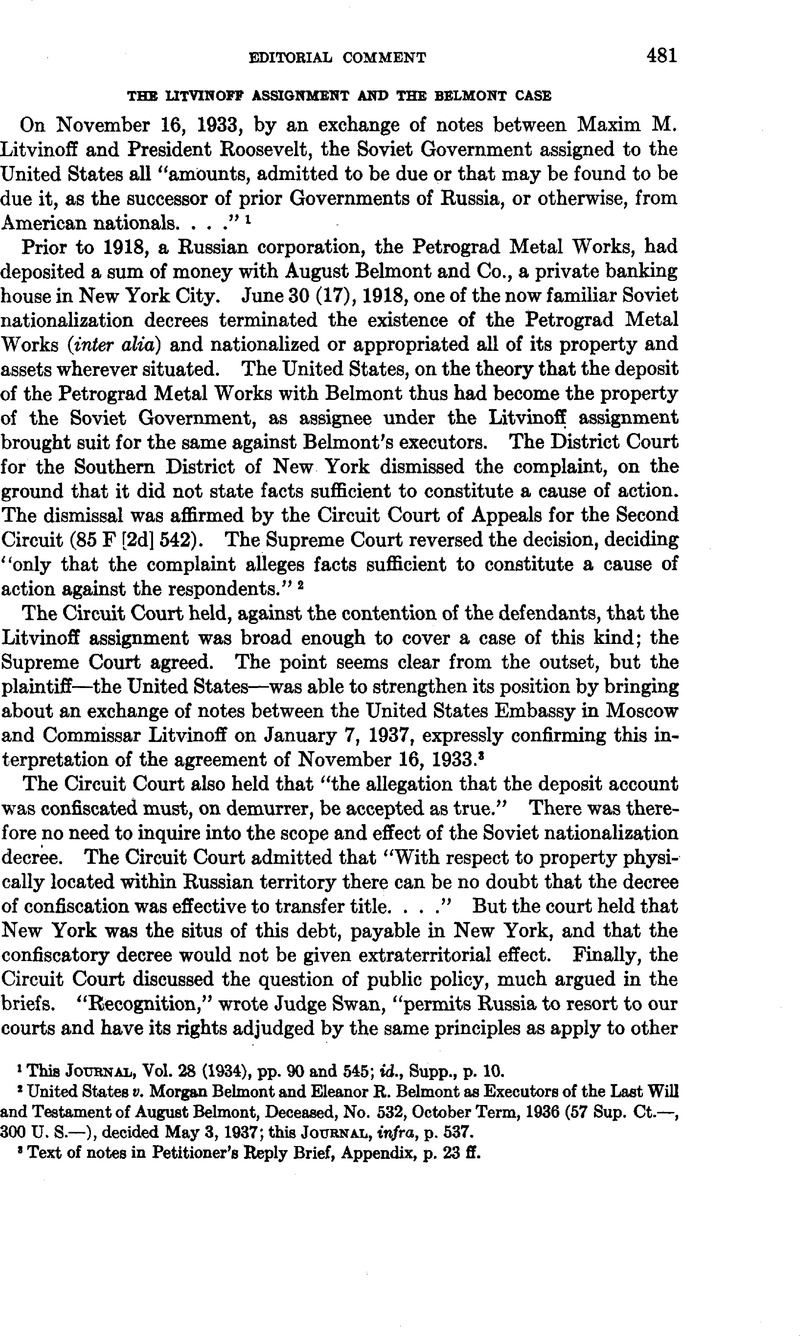No CrossRef data available.
Published online by Cambridge University Press: 12 April 2017

1 This JOURNAL, Vol. 28 (1934), pp. 90 and 545; id., Supp., p. 10.
2 United States v. Morgan, Belmont and Eleanor R., Belmont as Executors of the Last Will and Testament of August Belmont, Deceased, No. 532, October Term, 1936 (57 Sup. Ct.—, 300 U. S.—), decided May 3, 1937; this JOURNAL, infra, p. 537 Google Scholar.
3 Text of notes in Petitioner’s Reply Brief, Appendix, p. 23 ft.
4 N. Y. Sess. Laws, 1936, c. 917, addingCivil Practice Act, Sec. 977-b.
5 There is an extensive literature on the New York cases which will not be discussed here, but attention may be called to the case of the Vladikavkazsky Railway Co. v. The New York Trust Co. (1934), 263 N. Y. 269, which contains some strong statements on a somewhat similar set of facts; this is one of the New York cases decided subsequent to recognition.
6 “Fifty Years of International Law,” Harvard Law Review, Vol. L, pp. 395, 431 (1937).
7 The subject is thoroughly treated in a manuscript about to be published by Willard Bunce Cowles: The Interference with Property in Consequence of Treaty without Just Compensation and without Due Process of Law.
8 United States v.Bank of New York and Trust Co., 77 P. (2d) 866; affirmed, 296 U. S. 463. See this JOURNAL, Vol. 28 (1934), p. 545.
9 The Muir case (1920), 254 U. S. 520; the Pesaro (1921), 255 U. S. 216; the Gul Djemal (1924), 264 U. S. 90; and, finally, Berizzi Brothers Co. v. S. S. Pesaro (1926), 271 U. S. 562.